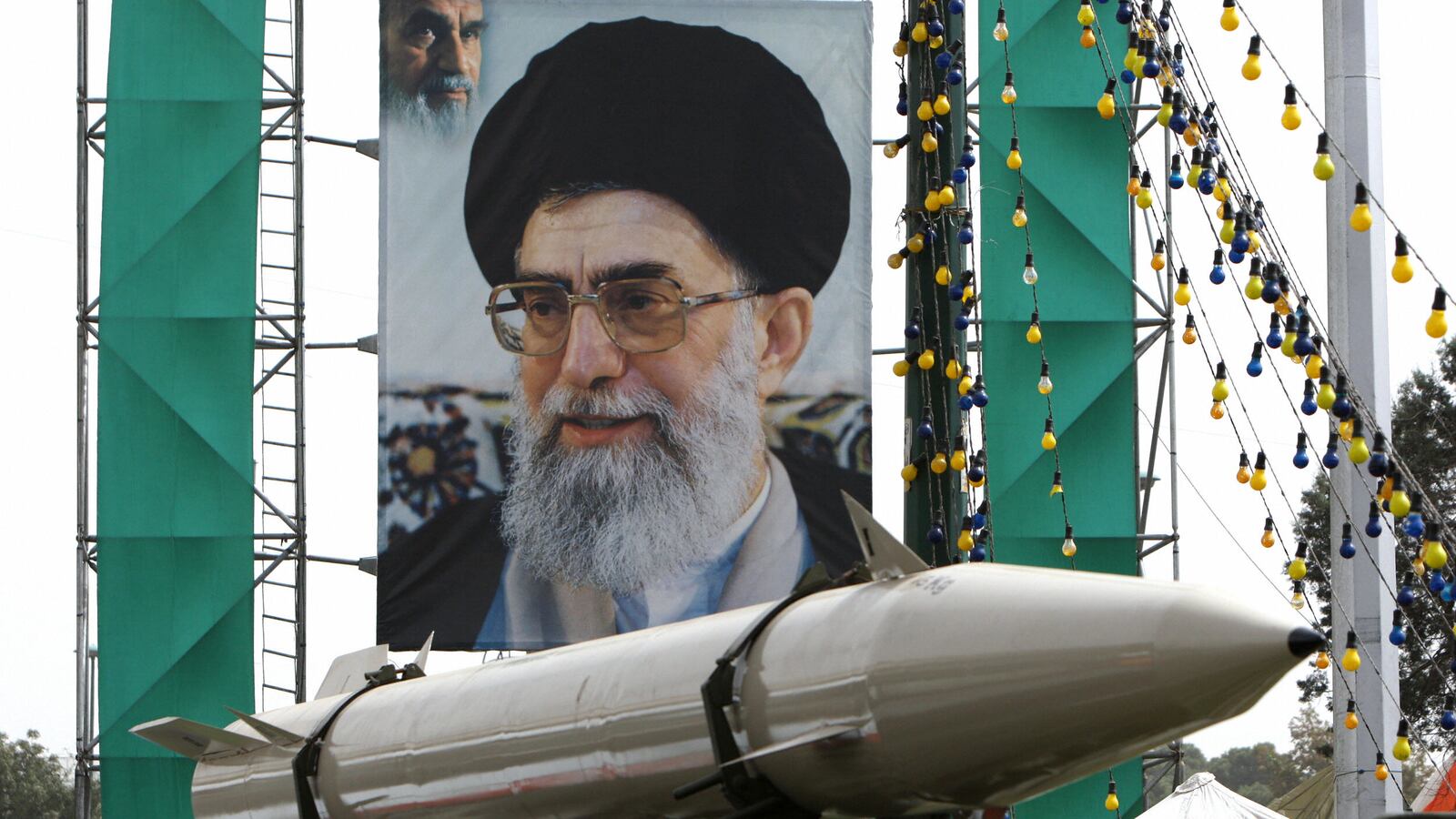Iran’s Supreme Leader, Ayatollah Ali Khamenei, just poured cold water on the idea of bilateral talks between the US and Iran. Although the Obama administration has sought talks, both Washington and Tehran agree on one point: They are both skeptical about the prospects of future diplomacy and suspicious of the other’s intentions and capabilities for peace making. With Khamenei’s negative statement and Iran’s pre-negotiation wrangling delaying the next round of talk till February 26, Washington’s strategy of manufacturing a climax to force Iran’s hand may have boomeranged. If the window for diplomacy before the Iranian elections is missed, Obama’s political space for talks will close once more with an accompanying increase in risk of war.
There is a split in Tehran on how to proceed in the diplomatic dance, but also a consensus on the minimum the West must offer to make a deal acceptable. The first line of thinking in Tehran acknowledges that President Barack Obama has through a combination of measures—as well as unpredictable developments in the region such as Arab spring and the civil war in Syria—rolled back Iran’s regional influence. Momentum is currently on the Western side and Iran has lost the initiative.

The question is, officials in Tehran associated with this line of thinking say, whether the US and the EU have the maturity and the strength to make Iran a face-saving offer that meets Tehran’s bottom line—the lifting of nuclear sanctions and acceptance of limited enrichment in Iran under strict inspections. Thus far, the West has refrained from concretely putting serious sanctions relief and acknowledgment of enrichment in Iran on the negotiating table, arguing that these measures will at best be discussed at a much later point in the diplomatic process.
The other line of thinking in Tehran believes that Washington won’t make a deal unless it is forced to. This approach to Washington is identical to America’s approach to Tehran: The belief that the other side only responds to (overwhelming) pressure. Consequently, asking the West for a save facing out will not work because it signals weakness, not strength. Iran’s only option, the reasoning goes, is to regain momentum in order to force Washington to “come back to the table.” Hence, as long as the West does not put offers on the table that meet Iran’s bottom line, the calculation goes, Iran should play for time and seek a game changer that enables it to set the terms for a deal. Even though the price of stalling will be high, the price of failed talks will likely be equally high, leaving Tehran better off seeking to press the West to improve the deal—rather than participating in talks that are doomed to fail.
Khamenei has unsurprisingly come down on the side of the latter line of thinking. By stating “You are holding a gun against Iran saying you want to talk. The Iranian nation will not be frightened by the threats"—though he has conceded that Iran has been weakened and that momentum is on the US side. But it simply doesn’t lie in his nature to agree to talks from a position of weakness—and certainly not without the protection of having the talks be conducted by an Iranian President who he can take the blame for any potential failure in the talks. Khamenei would rather wait till after the Iranian elections, it seems, in order to both find ways to shift the momentum back to Iran’s side and to hide behind Iran’s new President in the talks.
In the past ten years, neither side has been able to translate their “momentum” into a deal. The perpetual search for a game changer that would conclusively shift momentum to one’s side is circular—none of the game changers have compelled the other side to capitulate and both side have found themselves incapable of translating a upper hand into a favorable deal, largely because of their maximalist approach in which they, in the words of MIT’s Jim Walsh, seek a lot at the negotiating table without offering anything in return.
This, however, doesn’t mean that either side will give up the search for the Holy Grail of game changers. The Iranians are currently looking at several different options to shift the momentum to their side. Just as some in Washington are considering a big final offer, essentially presenting Tehran an ultimatum, Tehran has its own versions of “ultimatum offers.” One would entail a significant but reversible concession on enrichment followed by a withdrawal from the Non-Proliferation treaty (NPT) if Washington does not yield on sanctions relief and Iran’s right to enrich. The initial unilateral concession could both throw the US off balance while reducing the risk that the withdrawal from the NPT would shift international public opinion against Iran.
Iran is also looking at non-nuclear paths to regain the upper hand. Tehran is doubling down in Syria—two weeks ago former Foreign Minister and current advisor to Iran’s Supreme Leader Ali Akbar Velayati said that “an attack on Syria would be considered an attack on Iran”—and calculates that if Bashar al-Assad survives a few more months, fatigue will besiege the West and the regional supporters of the uprising (primarily Turkey, Saudi Arabia, and Qatar). This will signal that even after Riyadh and Ankara threw all their resources on the Free Syrian Army, the Assad regime still survived thanks to the support it received from the Iranian regime.
This, in turn, will bolster Iran’s regional influence and shift the momentum back to its side—or so the clerical leadership in Iran hopes.
Add to this that Saudi Arabia will likely experience a succession crisis in 2013, which may give birth to an indigenous Saudi spring. At that point, Iran will be able to activate its assets in Saudi Arabia and destabilize the Kingdom, potentially even unseat the House of Saud.
If these scenarios were to play out in this fashion—Assad surviving in Syria and House of Saud falling in Saudi Arabia—Iran will likely achieve a game changer. At that point, it will be Iran’s turn to be tested if it has the foresight and maturity to offer a palpable deal to Washington, lest the search for momentum will reignite once again. For both Washington and Tehran, there is only one way to break this cycle: Abandon the maximalist approach at the negotiating table.






